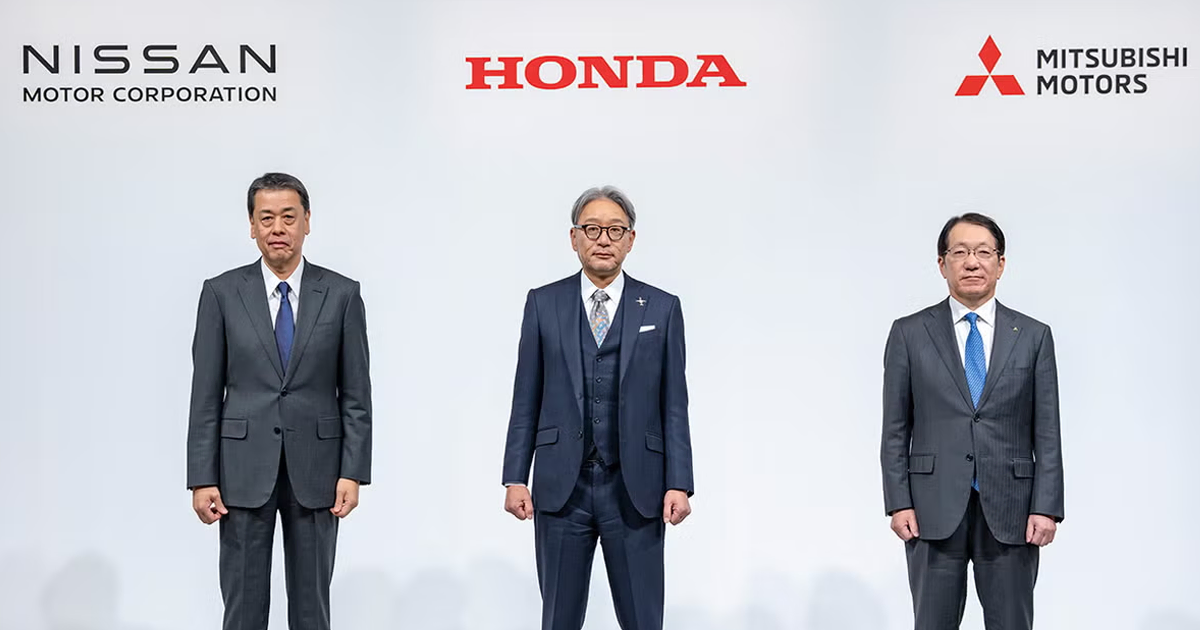

Honda Nissan Scrap Merger: $50 Billion Deal Falls Apart!
Honda and Nissan have canceled their $50 billion merger, keeping their businesses separate. This decision affects future car models, pricing, and electric vehicle development. Buyers from the United States and other areas can still expect competitive options from both brands.
This article explores what the cancellation means for those considering a Honda or Nissan vehicle and how Honda Nissan Scrap Merger Plan impacts the automotive industry.
Table of contents
Why Did Honda And Nissan Cancel The Merger?
Honda and Nissan have canceled their $50 billion merger, which was expected to create one of the largest car manufacturers in the world. Honda wanted a structure where it had more control, while Nissan preferred an equal partnership.
The companies had different goals, which led them to abandon the plan. Since they could not agree, they decided to continue as separate brands.
What About Future Electric Vehicles?
Both companies are developing electric vehicles, but they have different approaches. If the merger had happened, they might have worked together. Nissan (including its 2025 Nissan Versa model) has been a leader in the electric car market with the Leaf. Honda is expanding its lineup with models like the Honda Prologue and Acura ZDX.
Instead, they will compete separately, giving car buyers different options. Honda and Nissan will continue improving their electric vehicle technology to attract more customers.
How Does This Impact Car Buyers?
Car buyers will still have the same choices because Honda and Nissan will continue to operate separately. Since the merger is not happening, both companies will keep their independent strategies.
Honda is well known for producing reliable cars, while Nissan focuses on advanced technology. Customers can still expect competitive features, pricing options, and new models from both brands, giving them plenty of choices based on their needs and preferences.
Will Car Prices Be Affected?
Mergers often help companies lower costs, which can lead to reduced prices for customers. Honda will continue offering fuel-efficient, reliable cars, while Nissan will provide a mix of affordable and high-performance models.
Since Honda and Nissan will remain separate, their pricing strategies will stay the same. Without the merger, competition between the two brands remains strong, which could lead to better deals, promotions, and financing options for car buyers (such as those with the 2025 Honda Civic Hybrid model).
How Does This Affect U.S. Car Buyers?
Honda and Nissan dealerships will continue to operate separately, with the same service centers and financing options. The merger’s cancellation does not impact car availability, so buyers can still compare models and purchase the cars that best fit their needs.
Honda remains popular for its fuel-efficient sedans, while Nissan offers a mix of budget-friendly and high-tech vehicles.
What Happens to New Car Models?
Since Honda and Nissan are not merging, they will continue developing vehicles separately. Honda remains focused on fuel efficiency and long-lasting cars. Nissan is investing in smart car technology, including self-driving features and advanced safety systems.
Buyers interested in modern technology may choose Nissan, while those who prioritize durability and efficiency may prefer Honda. If they had merged, they might have shared strengths, but now they will stay competitive.
Should You Buy Now Or Wait?
Some buyers (such as those with the 2025 Nissan Murano model) may wonder if they should wait to buy a new car. Honda and Nissan will continue releasing new models as planned, so there will be no delays.
Since both companies are competing separately, they will likely continue offering promotions and discounts. It makes it a good time to buy if you find the right deal.
Conclusion
Honda and Nissan’s decision not to merge does not have a major impact on car buyers. Both companies will continue producing their vehicles separately. The failed merger does not change car models, pricing, or availability.
Honda remains focused on fuel efficiency and reliability, while Nissan keeps improving technology and performance. The Honda Nissan Scrap Merger Plan decision keeps both brands independent, shaping future vehicle options, competition, and innovation for car buyers.
Add a comment Cancel reply
US Car Brands
- Acura (7)
- Aito (1)
- Alfa Romeo (6)
- Alpine (1)
- Aston Martin (2)
- Audi (28)
- Bentley (2)
- Best EVs (1)
- BMW (33)
- Buick (8)
- BYD (2)
- Cadillac (14)
- Car Accessories (1)
- Car News (76)
- Car Reviews (74)
- Chevrolet (21)
- Chrysler (3)
- Citroen (2)
- Classic Cars (2)
- Compare Car (2)
- Coupes (11)
- Crossovers (6)
- Dodge (3)
- EV/Electric Car News (104)
- Ferrari (7)
- Fiat (1)
- Ford (21)
- Genesis (13)
- GMC (6)
- Gordon Murray Automotive (1)
- Hatchbacks (7)
- Honda (19)
- Hybrid Car News (34)
- Hypercar (4)
- Hyundai (18)
- INFINITI (6)
- Jaguar (4)
- Jeep (8)
- KIA (17)
- Lamborghini (2)
- Lancia (1)
- Land Rover (5)
- Lexus (8)
- Lincoln (2)
- Lucid (1)
- Luxury Cars (2)
- Mahindra (1)
- Maserati (1)
- Mazda (8)
- McLaren (2)
- Mercedes (8)
- Mercedes-AMG (2)
- Mercedes-Benz (4)
- MG (2)
- Minivans and Vans (7)
- Mitsubishi Motors USA (3)
- Morgan Motor (1)
- New Launch (4)
- News (82)
- NIO (2)
- Nissan (18)
- Pickup Trucks (8)
- Polestar (3)
- Porsche (8)
- RAM (5)
- Range Rover (2)
- Renault (5)
- Rivian (7)
- Rolls-Royce (4)
- Scout Motors (1)
- Sedan News (49)
- Skoda (4)
- Slate (1)
- Sports Cars (32)
- Sports Sedan (4)
- Station Wagons (1)
- Stellantis (1)
- Subaru (11)
- Supercar (5)
- SUV News (187)
- TATA Motors (2)
- Tesla (19)
- Tips & Advice (2)
- Toyota (43)
- Truck News (24)
- Uncategorized (1)
- Upcoming Cars (126)
- Volkswagen (15)
- Volvo (8)
- Xiaomi Car (2)
- Zeekr (1)











